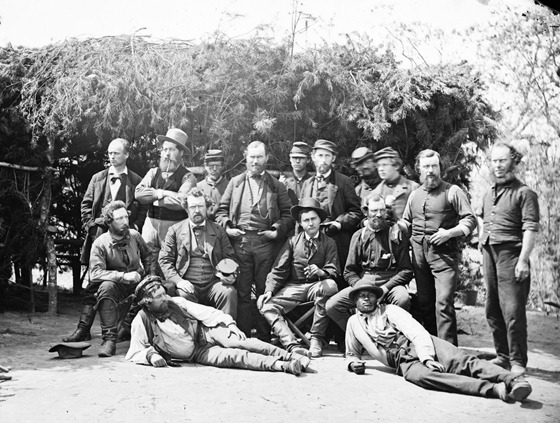May 22.—No battle occurred yesterday. Every one is confident that if the enemy would only fight, we would whip them soundly. They are digging intrenchments eloser and closer, and could shell Corinth at any hour. Some are not more than two and a half miles from us. We are beginning to feel a little nervous at the prospect of a shell waking us up some morning; certainly not a pleasant one to contemplate.
A prisoner is here, who eats at the table with us. He is a Presbyterian minister. He makes some very provoking remarks. Dr. Smith has advised us to take no notice of them, and say as little as possible. This appears hard, as nearly every one at the table has suffered some wrong at the hands of him and his people; nearly all their homes are in the hands of the enemy.
Dr. Sizemore has just received word of a young brother who has died in a northern prison, and of the ill treatment of the chaplain of his regiment, an inoffensive old man of more than seventy years, who had gone with the regiment more as a father than any thing else. This old man was imprisoned as if he were a common felon. Dr. S., knowing all this, has to endure the presence of this man, and see him treated as if he were one of our best friends. I must say that we are carrying out the commands of our blessed Savior; and how proud I am of it! May we be enabled to do the same to the end; and, above all things, not to retaliate upon the innocent, for God has said, “Vengeance is mine, and I will repay.” I was seated next to the prisoner to-day. He says that he is an Englishman. I would like to think that he is telling an untruth, as few Englishmen side with tyranny. But I expect that he has been long enough with the Yankees to imbibe some of their barbarous notions. He expressed the opinion that the southern people were not united. I remarked that if he would go through the state of Mississippi alone, he would change his mind, as I believed that if the men did not fight, the women would. But there will be no need of the latter, as the men will not fail to do their duty.
We requested Dr. Smith to permit us to pay him back for the impertinent remarks he had made to us. He granted permission, and stated that he would reprimand us in his presence. As soon as the foe made his appearance, some of the ladies commenced on him. Dr. S. said, “The ladies are very hard on you.” He replied with a very submissive air, “If it pleases them, I have no objection.” Mrs. Glassburn, who was at the head of the table, observed, “It does not please us; but I will tell you what will: when we know that every Yankee is laid low in the ground, then we will be pleased indeed.” He made no reply, and must have felt the force of the remark. At any other time it would have been a barbarous one; but at the present it was charitable, and one that we all felt, if realized, would not only be a blessing to us, but to humanity.






 London, May 22, 1862
London, May 22, 1862


